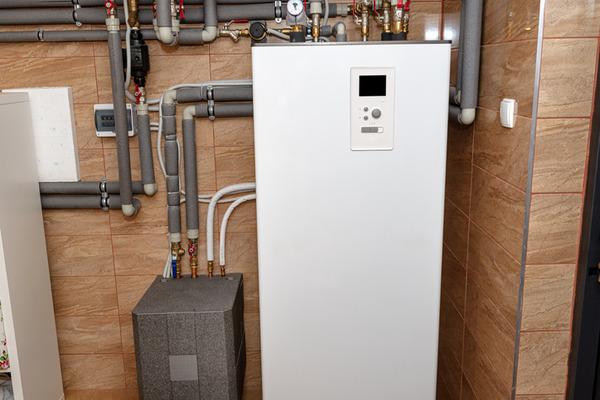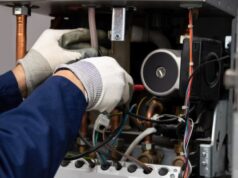
Heat pump hot water systems extract heat from the surrounding air to warm your water supply, offering an energy-efficient alternative to traditional electric and gas storage systems. They are especially useful where gas reticulation or rooftop solar collectors are not viable.
How heat pump water heaters work
Heat pumps operate similarly to a refrigerator, but in reverse. They extract ambient heat from the air and transfer it to water via a closed refrigeration cycle:
- A fan draws in air over an evaporator coil filled with a cold refrigerant.
- The refrigerant absorbs heat and evaporates.
- A compressor increases the pressure and temperature of the gas.
- The heated gas passes through a condenser coil wrapped around or inside a water tank, transferring heat to the water.
- The refrigerant is then expanded and cooled, and the cycle repeats.
Types of heat pump systems
Most heat pump hot water systems are electric-powered and feature either:
- Integrated systems: Tank and compressor in a single unit
- Split systems: Compressor and tank separated for flexible placement
Gas-powered heat pump systems are not available.
Where heat pumps work best
Heat pump systems are particularly effective in warm and temperate climates (above 19°C average). In these areas, they:
- Run more efficiently due to more available ambient heat
- Require less effort from the compressor, prolonging unit life
In cooler regions, heat pumps may still function but will:
- Operate less efficiently
- Use more electricity
- Experience increased wear and tear on components
Are they right for your home?
Pros:
- Use up to two-thirds less electricity than traditional electric storage systems
- Easy to retrofit in place of electric units
- No gas line or solar infrastructure required
Cons:
- May operate during peak tariff hours, increasing electricity costs
- Performance drops in cold climates
- Can be noisy (~40–60 dBA), affecting placement near windows or neighbouring dwellings
Installation considerations
- Choose a well-ventilated, outdoor location away from bedrooms or neighbouring homes.
- Check local council noise regulations.
- Avoid placing near corrosive environments (e.g. pool chemicals, salt spray).
- Allow for clear airflow around intake and exhaust vents.
Installation is similar to standard electric storage systems but may require:
- Slightly more clearance for airflow
- Anti-corrosion precautions
- An electrical circuit suited to the heat pump’s rated power draw
Compliance and incentives
- Must comply with AS/NZS 3500 plumbing standards and NCC Volume Three (Plumbing Code of Australia).
- Eligible for Small-scale Technology Certificates (STCs) under the federal Renewable Energy Target (RET) if installed by an accredited provider.
- May also qualify for state-based rebates (e.g. Victorian Energy Upgrades, NSW Energy Savings Scheme).
Suggested diagrams
- System diagram: heat pump cycle with components (evaporator, compressor, condenser)
- Integrated vs split system layouts
- Noise zone planning map
- STC eligibility flowchart
Heat pump hot water systems offer an increasingly popular, sustainable solution for Australian homes. While best suited to warmer climates, they are adaptable and efficient alternatives to electric resistance systems, particularly when combined with renewable energy tariffs or incentives.





